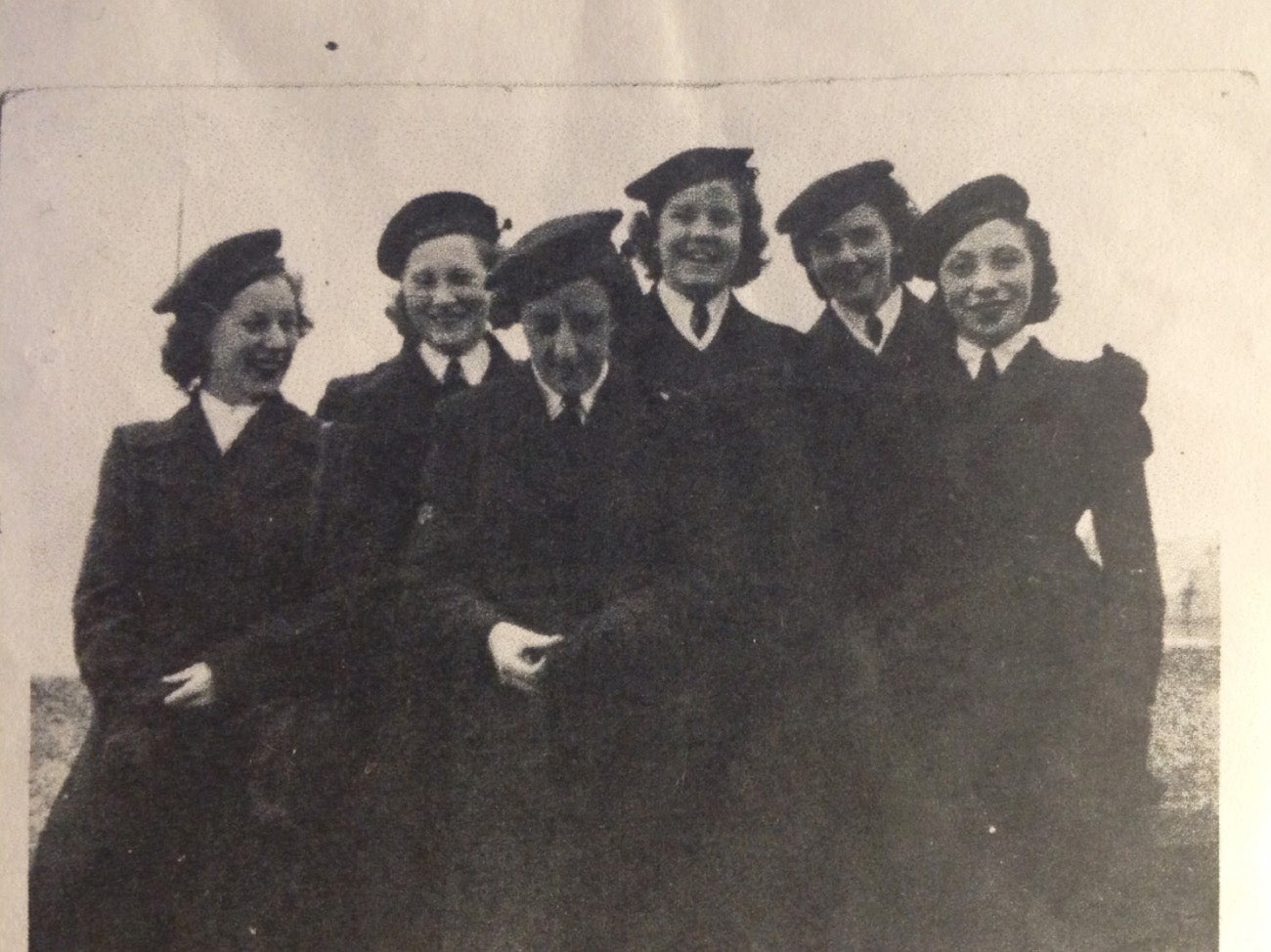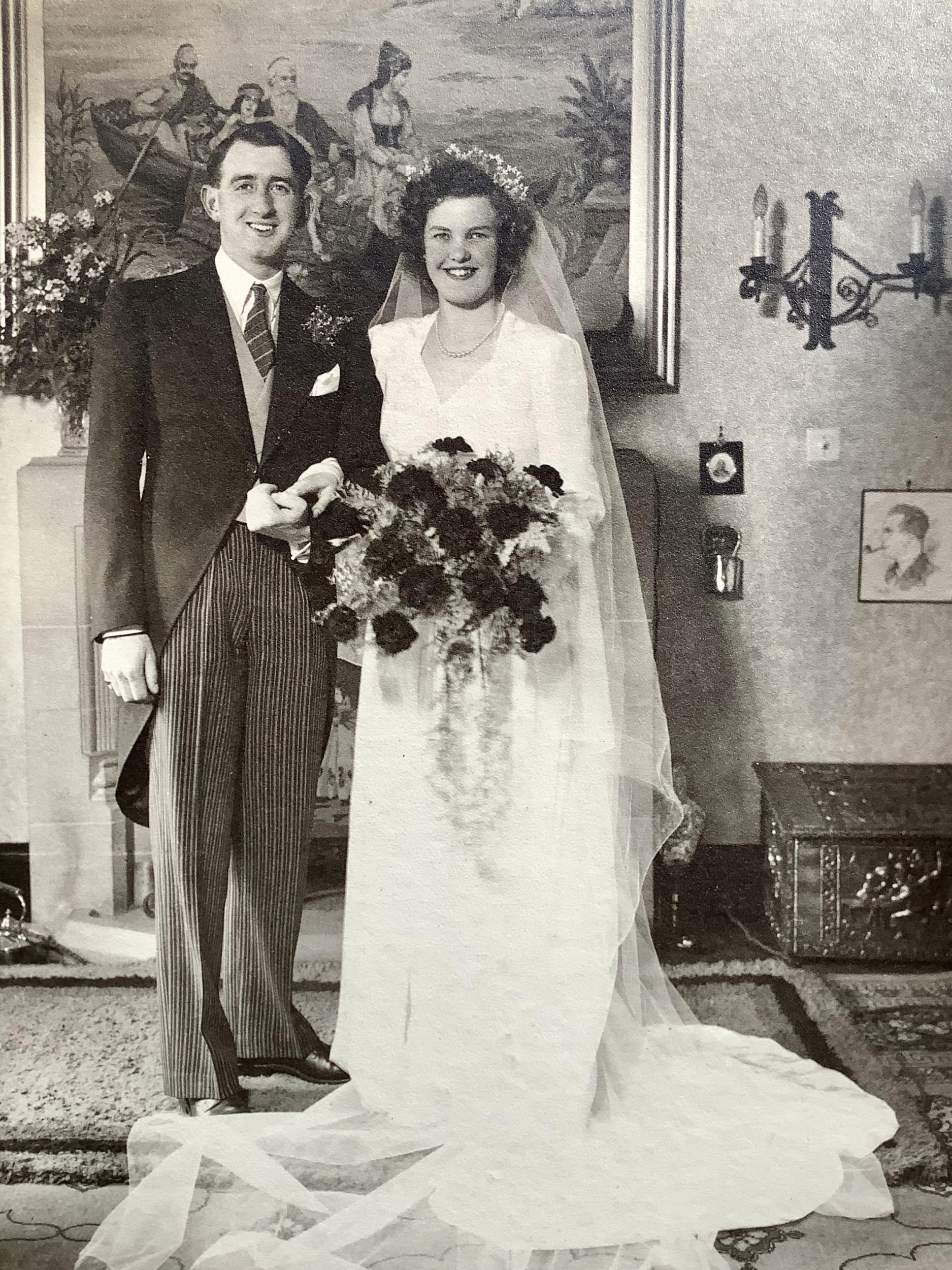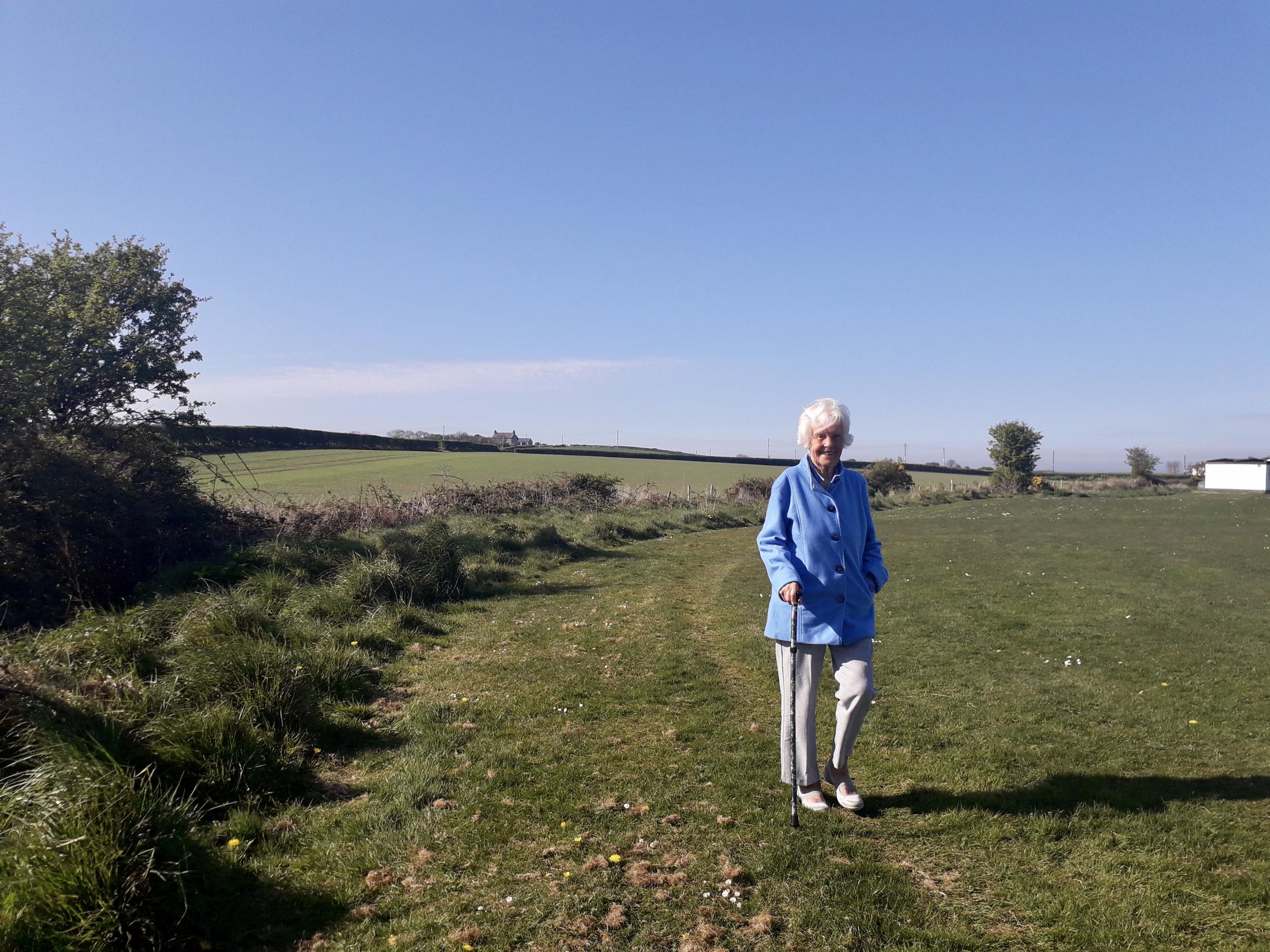‘I celebrated VE Day in 1945 – 75 years later, this pandemic feels like a different and lonelier kind of war’
Maureen Lightbody, 94, was part of the Women’s Royal Naval Service stationed in Bangor, where the allied fleet assembled ahead of D-Day. Here she tells Alexandra Jones about life on the home front


Of course, it was a great relief when the war was over – you felt for those poor boys who risked themselves. None of us really knew what was happening in the rest of the country on the 8th May 1945. I’ve seen the pictures from London since then but at the time we had no TV so news was slow to come, if it came at all. At home the celebrations were all very spontaneous, people dancing in the streets, parties and cakes – people made them as best they could with their rations. I remember making almond paste for a cake from bashed-up butter beans and almond essence.
I was 14 when the war broke out. The night before I had been preparing to go to Guide camp in Scotland and broke my arm, so I ended up in Bangor hospital on the day itself. Of course, I never made it to the camp – and I remember someone coming in and saying, “have your gas masks ready.” I was scared stiff thinking we were going to be bombed that day.
Bangor was mainly spared. At one point some planes went over, I think photographing the area, and the siren sounded. I remember my mouth going numb with the fear. Another time I went into town after it was bombed, there was an eerie quietness, the horrible smell of burning, those things will never leave me – and it’s a wonder now that this all got rebuilt. Otherwise, though, I count myself as very lucky.
By the time I was finishing school I’d decided to enlist in the Women's Royal Naval Service (Wrens). I think I fancied the uniform if I’m honest. My duties included signalling to the ships entering and leaving Belfast Lough with morse code and an Aldis lamp. Bangor was an incredibly important port – with vessels gathering in Belfast Lough from all over Britain, as well as Canada and the USA. They say around 300,000 American GIs passed through on their way to fight in Europe. We’d be finding anchorages for them, that kind of thing.

Well you can imagine how bustling the town became. These American battleships were huge – and Bangor was packed with the sailors. I think a lot of Bangor girls had a good time. It was funny, they would signal from the ships as they were coming in, "are there any dames?" And of course, all the lights would start flashing as the Wrens signalled back. Some of the Wrens would go out in the smaller boats to collect their boarding papers and they’d get so excited at seeing us that the sailors would throw white bread, perfumes, lipsticks and fruit over to our boat - although half of it ended up in the sea. They’d bring us bananas - well there were some children in Bangor who’d never even seen one. I remember one little boy bit into his with the skin on.
This is a very lonely time. We’re so cut off from one another
I was going with my husband-to-be then anyway, so I wasn’t really interested, but the atmosphere in town was certainly exciting. An American band played up and down the main street to entertain people. And there were dances at a nearby stately home – Wren’s were invited to dance with the American troops because civilians weren’t allowed. I only went now and again – these men wanted to take you out and marry you the first night they met you. I was so young... I think I was terrified.
In the end, the fleet which would take part in D Day – the offensive which won the war for the allies - met at Belfast Lough. None of us had any idea, it was kept so secret. It is shaped like a horseshoe – and there were so many ships that you could have jumped from deck to deck across the Lough. Seeing them all leave overnight ahead of D-Day, it was unbelievable, it was some sight.

I’m sad for how this VE Day will be celebrated. This pandemic is a kind of war, but it’s a lonely war. During WW2 we lacked a lot of good communications but everyone could get together and talk, could support one another. In comparison, this is a very lonely time. We’re so cut off from one another. And it’s terrifying to think about the future – I’m very sorry for the young ones, I have 15 great grandchildren and it’s so frustrating for them. This might be a different kind of battle but it still affects everyone, the whole world – and you feel very powerless, beyond just doing as you’re told.
Personally, I feel that I played my part in the war and I’m going to play my part now. I was so inspired by Captain Tom Moore that I decided to walk 95 miles before my 95th birthday to raise money for Macmillan Cancer Trust. I do a mile a day in the field next to my house. It’s been 75 years, but I still want to make my contribution.
Join our commenting forum
Join thought-provoking conversations, follow other Independent readers and see their replies
Comments
Bookmark popover
Removed from bookmarks